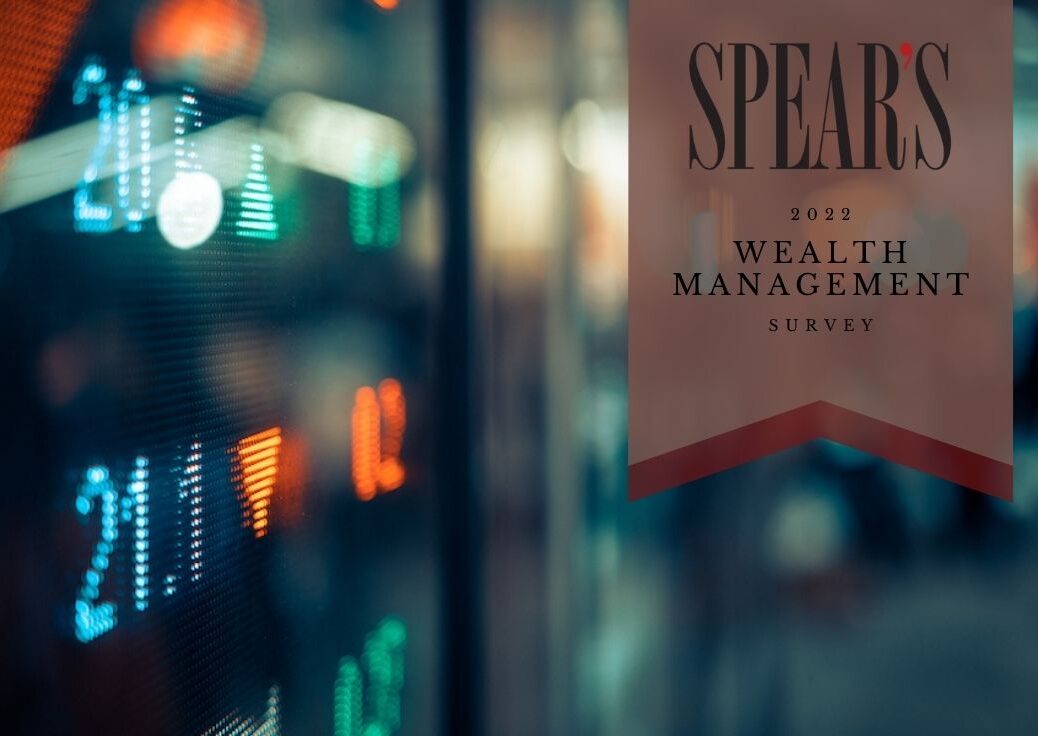
How are geo-political tensions shaping the HNW agenda? Which assets will provide an inflation hedge? And where does wealth management fit into this new landscape? The 2022 Spear’s Wealth Management Survey has the answers.
It is during major upheaval – a war between sovereign nations, the fracture of an economic union, a global pandemic, or a combination of all three – that a wealth manager earns their reputation. The Spear’s Research Unit’s wealth manager index provides a measure of how these reputations are being built; the survey conducted alongside acts as a barometer for how industry leaders perceive key issues.
Last year’s survey, which was held amidst Covid vaccination programmes, was tinged with optimism. Belief that the global economy would continue to grow was almost unanimous and wealth managers looked to well-balanced equities as the best driver of prosperity.
This year’s survey has been conducted in much gloomier conditions. The fog of war drifting across Europe has made it difficult to see a clear path for the global economy with 55 per cent of respondents predicting continued growth and 44 per cent expecting an economic slowdown.
‘I think if you’d asked at the start of the year, you’d probably get a different response,’ said Charles Sanford, partner and wealth manager at LGT Wealth Management. ‘We have had a serious war in Ukraine; we’ve had an incredibly hawkish central bank; I do think economic growth will be positive around the world, but it won’t be as much as we were forecasting originally.’
Even the clearest trends have become more obscure. Public and private equities are still adviser’s favoured store for wealth, but some have lost faith. While 65 per cent of wealth managers said they would be advising their clients to increase exposure to equities last year, only 58 per cent will do so this year. The proportion of advisers that think their clients should actively decrease their equity holdings also increased from five per cent last year to 16 per cent this year.
Meanwhile, the rush towards digital coins has slowed to a trudge, with the proportion of managers advising HNW clients to buy cryptocurrencies dropping from 50 per cent last year to just six per cent this year. Perhaps this is unsurprising given the value of high-profile coins has nosedived, but it also suggests the crypto industry is entering a new phase. ‘I think the easy money has been made,’ says Sanford. ‘You might get three times multiple over the next three, five, 10 years, but equally there could be a regulatory crackdown and you could go to zero.’
Sanford isn’t the only adviser reassessing their approach to cryptocurrencies: 73 per cent of respondents said that HNW investors should decrease or leave their exposure to the asset class unchanged. advisers’ enthusiasm for cash is also waning, however, with 68 per cent of respondents suggesting they thought their clients were over-exposed to cash or equivalents compared to 57 per cent a year ago. This undoubtedly reflects the damage that inflation could do to cash-heavy portfolios, but some respondents suggested that their clients simply liked cash more than they do.
Some respondents sought to cast the economic outlook in a more positive light. ‘Let’s not forget that inflation is generally good for our purposes,’ says Adam Brownlee, executive director of Coutts Family Office. ‘It depends on what sort of asset class we’re talking about for our clients. Rising interest rates is negative for fixed income and positive for equities, so it depends on the makeup of the client’s portfolio.’
But most respondents are finding it hard to draw the positives amid mounting global tensions. More than 75 per cent of wealth managers see shifting international relations as a moderate or severe threat, almost 30 per cent more than last year. The situation in Ukraine has pushed global events straight to the top of the table of risks, eclipsing the shifting fortunes of clients’ own businesses (last year’s top threat) which this year is not seen as severe by anyone, and only as significant by 41 per cent of advisers.
Surveying this unstable and difficult world, wealth managers are increasingly aware of the value of expert advice. Respondents want their firms to prioritise investment in talent, both in terms of employing individuals and communicating to clients that they are experts in the field. The world is changing and now is the time for wealth managers to prove they can navigate it.
Brownlee said: ‘With the advent of technology and the ability of clients to access huge amounts of information much more easily without the seeming need for a face-to-face personal interaction, which has only been brought forward by the pandemic, I think we have to demonstrate the specialist knowledge that colleagues bring to the family office team. Clients are looking for that more now to demonstrate where we add value rather than saying the same old things.’
One thing that hasn’t changed since last year is the importance of succession planning. 59 per cent of advisers rank it as the most important thing in ensuring the continued wellbeing of a client’s wealth.
It’s something family offices specialise in, taking a multi-generational view. Brownlee said: ‘What we’re seeing more of is conversations around two things: one, next generation, second and third generation and how clients manage that with the family and the transition of wealth between the wealth creators and the second and third generations, and two, education. They’re wanting support and expertise around the education of the second and third generation, so they can understand the sort of conversations they’re having with the parents.’






